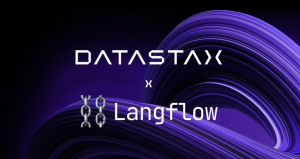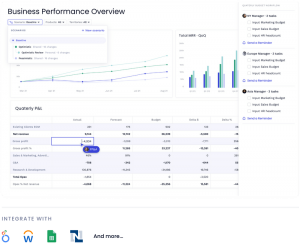Web 2.0 Summit Brings Gingerbread, Patience for Chrome OS, and Adobe
![]() Google must have a lot up their sleeve these days with lots of products—mostly on the software front for Web 2.0—to titillate the audience with. They cover, most importantly, developments in the Google Android operating system and the much awaited Chrome OS. Just in time for Thanksgiving and not missing out on Halloween, the next development for Android gets the name Gingerbread.
Google must have a lot up their sleeve these days with lots of products—mostly on the software front for Web 2.0—to titillate the audience with. They cover, most importantly, developments in the Google Android operating system and the much awaited Chrome OS. Just in time for Thanksgiving and not missing out on Halloween, the next development for Android gets the name Gingerbread.
According to an article at CrunchGear, the information comes to us during a speech by Google CEO Eric Schmidt,
Gingerbread, as they are calling Android version 2.3 (apparently not 3.0, said to be Honeycomb), was shown off on what appeared to be a Nexus S, which would make sense as the first phone to roll out with the update. New features include near-field communication and potentially face recognition, in addition to the resolution compatibility improvements and other under-the-hood changes.
[…]
As for Chrome OS, well, it’s not the news we wanted to hear. November was supposed to be the big debut, but that’s looking mighty unlikely, as Schmidt put the release at sometime in “the next few months.” No holiday release then, I suppose.
So we’ll have to wait a little bit longer before getting a taste of Chrome OS. Not quite as bad as an evil witch in a Gingerbread House, but still a little bit disappointing. Looks like Chrome OS will begin geared towards netbooks instead of tablet platforms—i.e. it will be developed away from devices that involve touch.
This development probably means that Chrome OS will be designed for low-power devices to provide swift reaction and a GUI designed for pointing devices. While there’s certainly going to be an interest, and potentially market, for Chrome OS on touch-devices, we’ll probably see Android OS on Google tablets and their kin as a result.
On the Adobe front, Mashable has some notes, CEO Shantanu Narayen squared off against Apple during his keynote speech and while answering questions with his “Let the games begin,” comment. Much like how Google sees Apple, Adobe poked holes in Apple’s ego by commenting that they sit on opposite sides of the open vs. proprietary spectrum.
“Apple is closed and proprietary, Adobe is about openness,” says Narayen.
On the openness front, Adobe’s CEO includes that they have open standards for Flash, PDF, and Postscript—and didn’t even pause to take another shot at Apple for not loading Flash on iOS as being a closed attitude. Narayen mentioned that they intend to tackle privacy issues.
Also on the Flash front, a questioner brought up issues of battery-life and power problems when running Flash on handheld and low-power devices. The Flash vs. HTML5 battle that is heating up for handhelds. Narayen replied by pointing out that the newest Flash is the most efficient yet—and the best performing of all Flash players that benefits greatly from hardware acceleration. And, on top of that, web video is exploding in popularity and is poised to take the technology with it.
Still a lot to see from these two companies at the Web 2.0 Summit. Google and Adobe have a lot to bring to the table and we can expect a lot more interesting presentations from them.
A message from John Furrier, co-founder of SiliconANGLE:
Your vote of support is important to us and it helps us keep the content FREE.
One click below supports our mission to provide free, deep, and relevant content.
Join our community on YouTube
Join the community that includes more than 15,000 #CubeAlumni experts, including Amazon.com CEO Andy Jassy, Dell Technologies founder and CEO Michael Dell, Intel CEO Pat Gelsinger, and many more luminaries and experts.
THANK YOU









